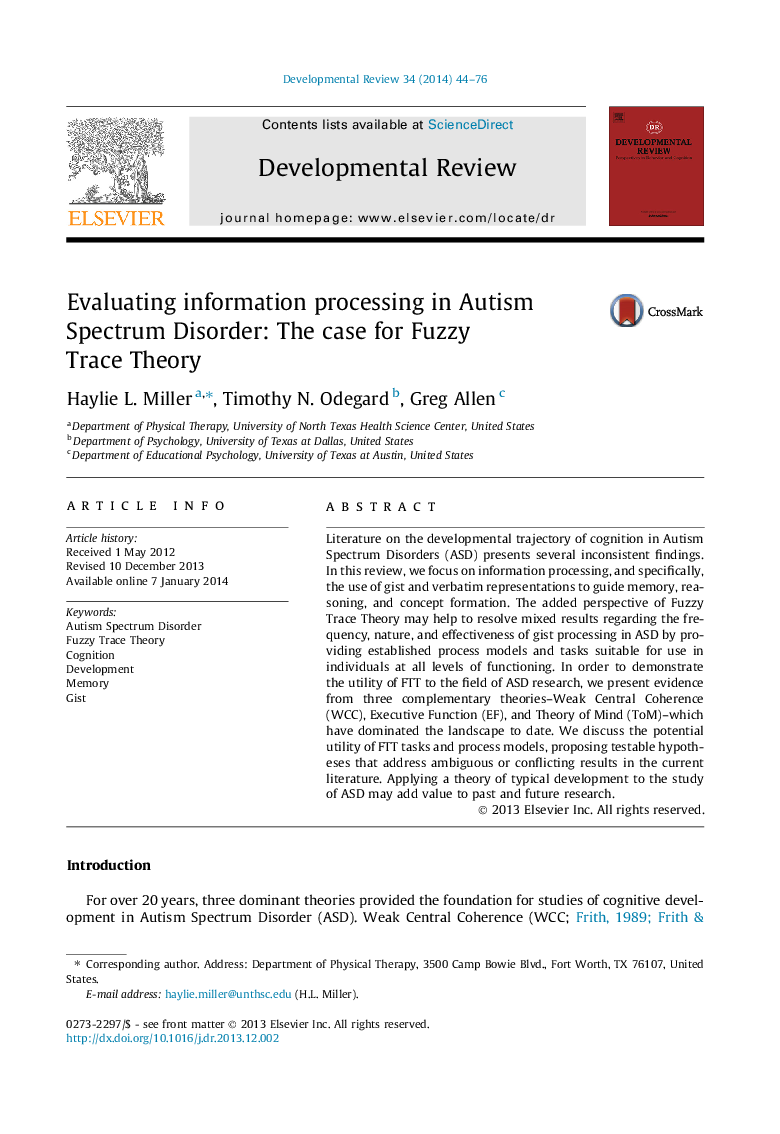| کد مقاله | کد نشریه | سال انتشار | مقاله انگلیسی | نسخه تمام متن |
|---|---|---|---|---|
| 353503 | 618811 | 2014 | 33 صفحه PDF | دانلود رایگان |
• We present a complementary approach to understanding the cognitive profile of ASD.
• We review key theories and experimental paradigms commonly used to assess cognition in ASD.
• We highlight models and methodology from Fuzzy Trace Theory that may inform studies of ASD.
• Using paradigms from typical development in studies of ASD facilitates comparisons.
• Refining the cognitive profile of ASD will aid development of effective interventions.
Literature on the developmental trajectory of cognition in Autism Spectrum Disorders (ASD) presents several inconsistent findings. In this review, we focus on information processing, and specifically, the use of gist and verbatim representations to guide memory, reasoning, and concept formation. The added perspective of Fuzzy Trace Theory may help to resolve mixed results regarding the frequency, nature, and effectiveness of gist processing in ASD by providing established process models and tasks suitable for use in individuals at all levels of functioning. In order to demonstrate the utility of FTT to the field of ASD research, we present evidence from three complementary theories–Weak Central Coherence (WCC), Executive Function (EF), and Theory of Mind (ToM)–which have dominated the landscape to date. We discuss the potential utility of FTT tasks and process models, proposing testable hypotheses that address ambiguous or conflicting results in the current literature. Applying a theory of typical development to the study of ASD may add value to past and future research.
Journal: Developmental Review - Volume 34, Issue 1, March 2014, Pages 44–76
